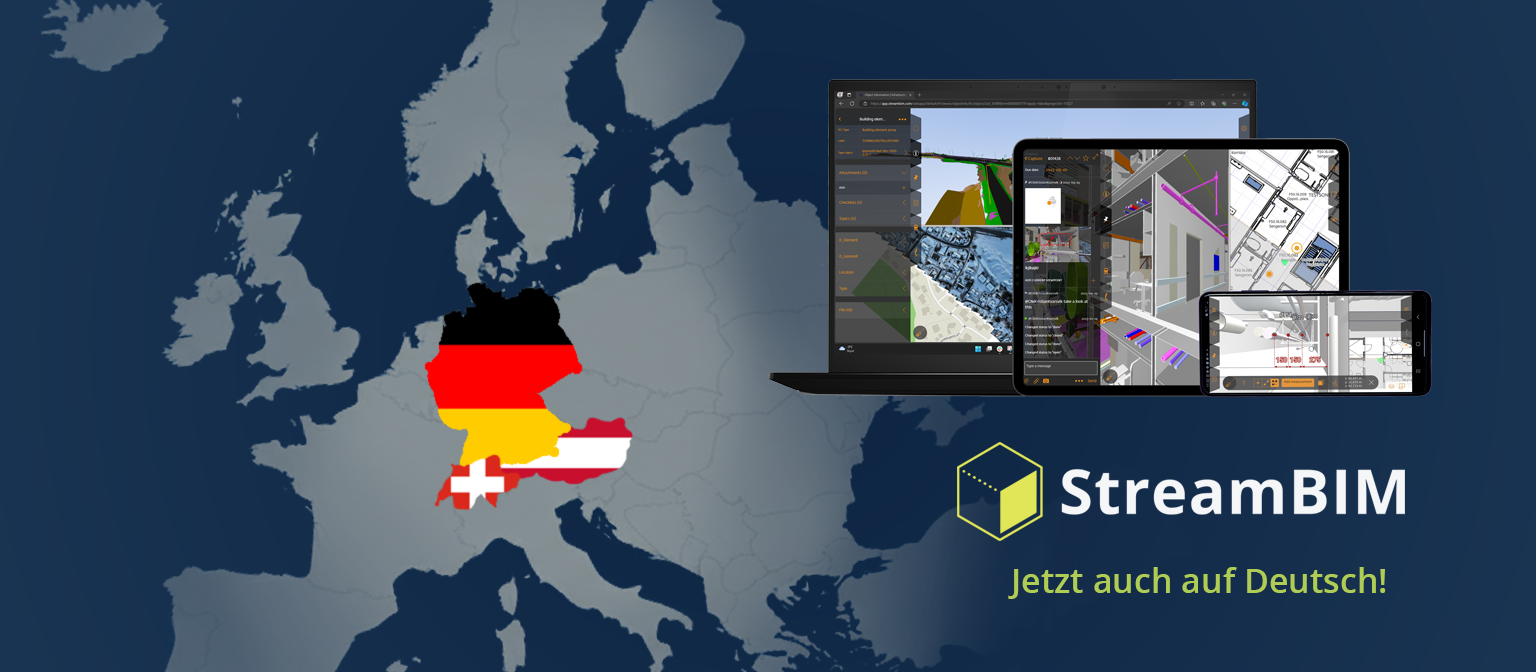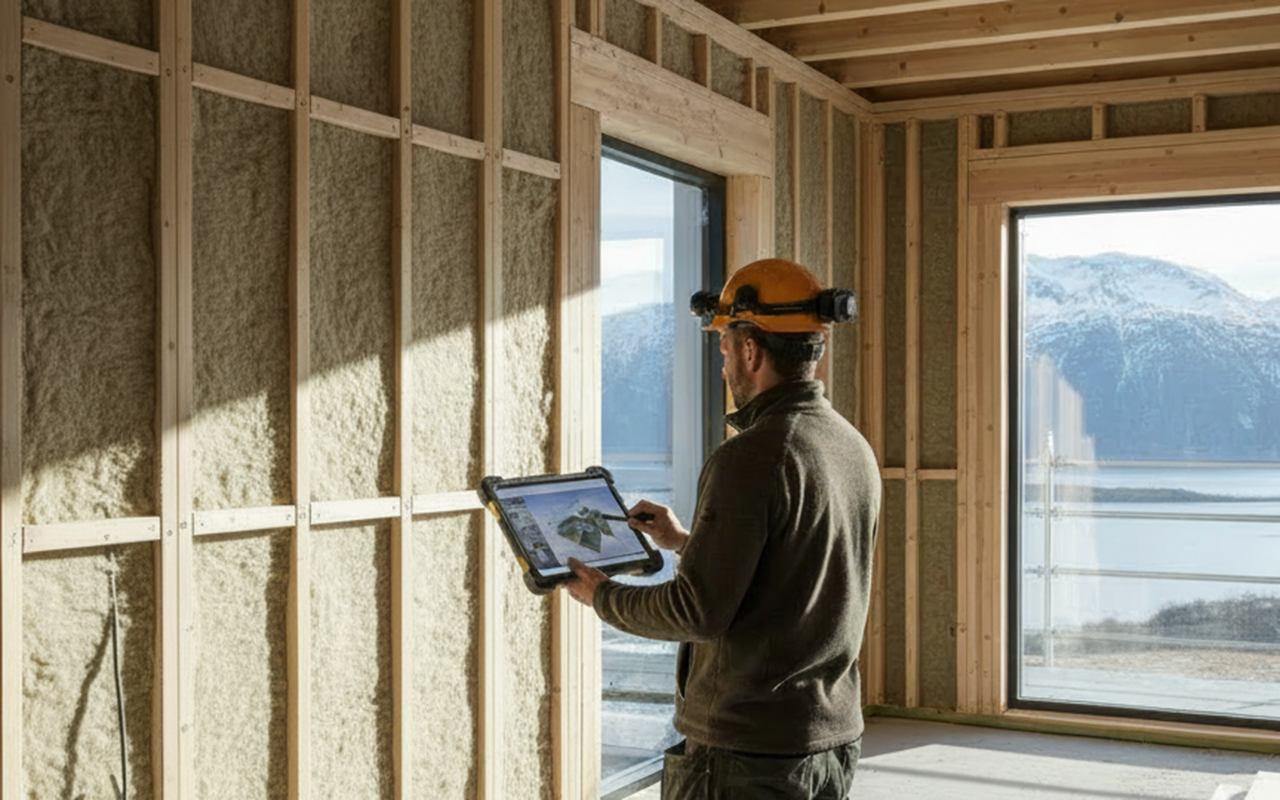The Celsius building in Uppsala is more than just offices and labs—it’s a next-level, advanced BIM collaboration showcase. Spanning 10,000 m² and housing 500 employees and high-tech laboratories, this LEED Platinum building was built fully digitally, with no paper drawings at all. That alone proves how bold and complex this project was.
Why This Is an Advanced, Complex BIM Build
Custom lab designs
Some labs had to be totally emissions-free.
Others needed zero visible metal—every bolt was painted over.
These tight specs demanded advanced BIM planning and precision.
Digital, no paper
Workers used only tablets, phones, and screens—no paper.
The 3D BIM model was legally binding, so if it wasn’t in BIM, it wasn’t real.
Production-driven BIM
The model included production-ready views made by site workers.
They measured, sectioned, and documented directly on mobile devices.
Tight on-site conditions
Building this large facility next to active research centers meant extremely limited disruption.
The Power of BIM Features: What Made It Work
1. Mobile BIM on Every Site Tool
Site teams always had rich BIM info through StreamBIM.
No need to hunt for files or outdated drawings.
Workers could design their own views right on-site.
Everything they needed was just a tap away.
Benefit: Cuts errors, saves time, and puts control in the hands of builders.
2. Cloud-Based Single Source of Truth
A centralized BIM model in the cloud was accessible around the clock.
Designers worked on Revit; files were synced nightly or weekly.
No more confusion over old vs new drawings.
Everyone stayed updated by morning.
Benefit: Real-time accuracy, fewer mistakes, and happy teams.
3. Interoperability at Work
StreamBIM worked well with different programs like Revit, Tekla, Solibri, and IFC.
Format transfers were smooth, letting every team see the whole model.
Custom views and reference planes helped guide on-site work precisely.
Benefit: Seamless workflows, no shutouts from BIM systems, sharp cross-team communication.
4. Production-Oriented BIM Models
This means the BIM wasn’t just digital drawings—it was made for real building.
Workers created the views they actually needed onsite.
Measurements and sections were live and always updated.
BIM became the true construction document, not a blueprint replacement.
Benefit: On-site clarity, swift decisions, and a direct link from model to build.
5. Real-Time Issue Tracking & Communication
StreamBIM transformed communication:
Site teams snapped photos, logged issues, added descriptions—all tied to live model spots.
Missing bolts? Clashes? Notes and fixes went instantly to responsible users.
No paper trails. No lost emails. Everything was visible and trackable.
Benefit: Transparent accountability, faster fixes, fewer delays.
6. BIM-Driven Logistics Cuts Waste
Using BIM-based quantity take-offs and timing saved resources:
They set up an off-site logistics center.
80% fewer deliveries happened than usual.
Benefit: Less traffic, less disturbance, and smarter material use.
7. Cost Control & Speed
Even with added BIM costs (licenses, Wi-Fi, tablets, training), results paid off.
Design costs rose from 11% to 13%.
But the project finished 2 months early and 2% under budget.
Benefit: BIM upfront = big savings and fast delivery.
8. Smart Sustainability Moves
High-tech labs and green goals mixed here.
BIM helped precision order materials—less waste.
80% fewer truck trips.
LEED Platinum, a buildingSMART Award, and top Sweden Green Building Award.
Benefit: Eco-friendly, high quality, award-winning results.
9. Clear Team Roles & Training
BIM wasn’t a mystery. It was the rule.
All workers had BIM education and onsite IT support.
Designers, site teams, and subs learned together.
Cloud backups, change tracking, and design-to-site guidelines were all standardized.
Benefit: Everyone contributed to BIM success and felt valued.
Key Learnings: Why BIM Benefits Make This Project a Model
| Feature | Benefit | Impact |
|---|---|---|
| Mobile BIM on-site | Instant info, fewer mistakes | Better build quality, faster progress |
| Cloud single source of truth | Up-to-date models | Clarity, reduced risk |
| Interoperability | Works with all teams | No digital isolation, better coordination |
| Production-oriented BIM | Construction ready | Efficient, precise building |
| Real-time tracking & photos | Issues solved fast | Smoother workflow, less rework |
| BIM-driven logistics | Fewer deliveries, better planning | Cost and waste savings |
| Cost & time savings | Under budget, early finish | ROI on BIM tech |
| Sustainability awards | Green credentials | Reputation boost |
| Standardized roles & training | Team-wide BIM adoption | Cultural shift, digital readiness |
Why This Is BIM Done Right
BIM benefits aren’t just extra tools—they are game-changers.
The Celsius project shows how advanced BIM features lead to real-world success in complexity, cost, sustainability, and time.
StreamBIM made this possible with:
Live, on-site mobile access
Smart issue tracking
Developer-friendly interop
Production-ready modeling tools
This delivery equals “Total BIM”—using BIM fully, from legal documents to workflow and production planning.
Final Thoughts: BIM Benefits Paying Off Big Time
Celsius isn’t just a building. It’s a masterclass in what happens when BIM is applied end-to-end:
Site teams empowered
All-in-one cloud model
Clear comms, no guesswork
Efficiency and speed
Eco-friendly, quality build
If your next complex build needs smarter planning, fewer errors, greener goals, and faster delivery, look to Celsius. It proves that BIM benefits and BIM features can turn high standards into reality—all with the right tools and mindset.
Want help using BIM like this on your projects? Let’s talk.




